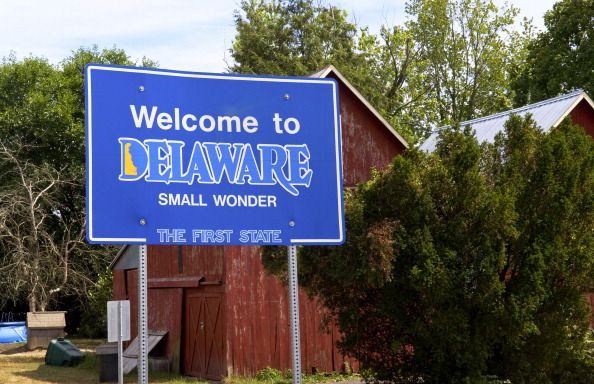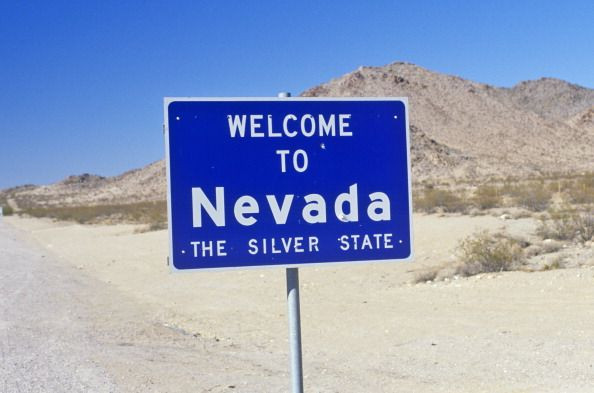Why Aren’t More Americans In The Panama Papers? Secrecy, Tax Laws In Nevada, Other States Provide Havens

More than 11.5 million records. About 2.6 terabytes of data. Roughly 200 Americans.
The red, white and blue has been surprisingly scarce so far in the Panama Papers, a giant leak of legal documents released this weekend linking hundreds of public officials and celebrities to tax evasion through an offshore company called Mossack Fonseca. McClatchy reported that at least 200 American passports were involved in the leak, but few reflected prominent names.
Why aren't there more Americans implicated in the Panama Papers? Well, there might be: An editor with Süddeutsche Zeitung, the German newspaper that has been leading the investigation of the records, tweeted Monday to "just wait" until more were released. But some tax experts suggest the reason is that U.S. executives simply don't have to leave the country to find places to make sly-but-legal business deals. The practices detailed in the documents are simply standard in many parts of the country, including Nevada and Delaware.
"A very small number of states are notorious for allowing pretty much anybody to start a company in the state without requiring even the most basic information," said Matthew Gardner, executive director of the Institute on Taxation and Economic Policy with Citizens for Tax Justice, a progressive think tank and advocacy group in Washington. "There are a few states that effectively make the U.S. a privacy haven in exactly the same way that Panama is being described here."
American companies hold more than $2.1 trillion in offshore accounts, but moving money is also a big issue at home. The Tax Justice Network, an independent international network based in Britain, ranked the U.S. third in its 2015 financial secrecy index, citing a "race to the bottom between individual states on standards of disclosure and transparency."
Among the worst offenders were Nevada, Wyoming and Delaware, all of which have emerged as fertile grounds where officials can set up shell corporations for cheap. Shell corporations don't have assets or operations and are often used by bigger companies to deal with financial transactions or to avoid paying a lot in taxes.
Nevada, for example, comes in at No. 8 on the International Consortium of Investigative Journalists' list of the top 10 most popular tax havens in the Panama Papers. And it's growing: In 2012, Nevada pulled in about $133 million from corporate filings, VegasInc reported. In 2002, it brought in merely $43 million in revenue, Reuters reported.
The Silver State has no income tax or annual franchise tax while offering privacy for executives, according to Incorporate.com. It only recently passed a commerce tax for business entities with gross annual revenue over $4 million and increased license fees.
But perhaps more attractive to business owners abroad are its loose laws for setting up corporations. Nevada courts historically protect the "corporate veil," according to nevadacorporationsonline.com. Until three years ago, people could use nominees to set up corporations without letting their names go public. An example: In 2011, Reuters wrote a feature article about three financial felons running corporations there without incident.

Gardner said that while a new company's name gets released, there are essentially "no questions asked" about the person behind it.
"My first thought was the reason we're not seeing more American names on this list is that there's no reason for Americans to go shopping for tax havens, financial secrecy havens. You don't need to go further than Nevada," he said.
Nevada, as well as Wyoming and Delaware, are notorious for peddling "the idea of anonymous companies and lax regulations around the creation of companies and, in some cases, taxation," said Heather Lowe, legal counsel and director of government affairs at Global Financial Integrity, a Washington-based nonprofit. She added that banks and companies are essentially "leaving it up to their client to determine what information they want to, or need to, file with the government."
Fusion recently published a story to prove this point. Reporter Natasha del Toro set up She Sells Sea Shells LLC, a company whose anonymous owner was focused on felines, not financials: The corporation is run by her cat Suki. All del Toro had to do in Delaware was find a registered agent, pick a name, spend $240 and get the paperwork approved.
Registered agents are required by law in Delaware and help people deal with legal paperwork as they set up a corporation. That's one of the services Mossack Fonseca, the company at the heart of the Panama Papers, provides, bragging on its website that it's faster and cheaper than competitors. In the U.S., two of the top registered agent groups are Corporation Service Company and CT Corp, the latter of which works with about 60 percent of Fortune 500 companies, according to the New York Times.
Delaware is the legal home to corporations like Bank of America, Google, Coca-Cola and Ford, according to the Times, but not only because of the privacy the Diamond State provides. Businesses only have to pay corporate income tax if they do business in Delaware.
In addition to saving money, a person might take advantage of an American tax haven because they believe banks in the U.S. are more secure than in places like the Cayman Islands, said Richard Frankel, an accounting professor at Washington University in St. Louis.
Reuven S. Avi-Yonah, director of the International Tax LLM Program at the University of Michigan in Ann Arbor, said American financial and legal structures could partially be the reason there are so few U.S. names in the Panama Papers leak. Avi-Yonah pointed to the Foreign Account Tax Compliance Act, a law from 2010 that requires taxpayers to be more transparent about their offshore assets and banks abroad to report them. That law, in addition to initiatives like the Offshore Voluntary Disclosure Program in 2009, brought in about $6.5 billion from taxes, penalties and interest payments, according to a news release from the IRS.
"People are afraid that if they try to do something like this, they will be caught," Avi-Yonah said.
But with everything, there are likely some people bucking the trend — opting to keep offshore accounts in not Panama, but Singapore, which has a reputation for being safe and discreet, he added.
That's where the American names might be.
© Copyright IBTimes 2024. All rights reserved.






















